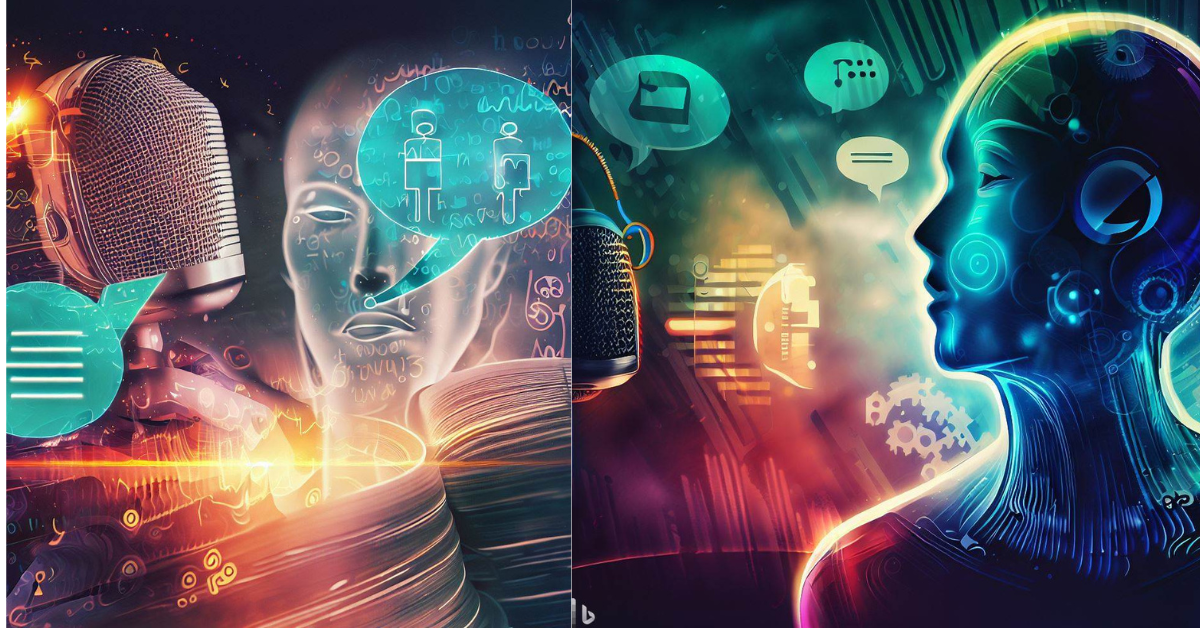Audiobook Industry Embraces AI Clones and Implications for Voice Actors

Introduction:
The audiobook industry is undergoing a profound transformation with the emergence of AI-generated clones of human voices. This shift has the potential to revolutionize audiobook production and consumption, with companies like Google Play and Apple Books already incorporating AI voices to some extent. However, challenges remain in replicating the nuanced aspects of human speech, prompting discussions on quality, authenticity, and the impact on voice actors.
AI-Generated Voices: Transforming Audiobook Production
AI-generated voices are poised to transform the audiobook industry, offering faster and potentially cheaper production methods. Companies are leveraging AI technology to create clones of human voices, which can narrate books with remarkable accuracy. While this promises increased efficiency, concerns arise regarding the preservation of human connection and storytelling nuances.
Challenges in Replicating Human Voice Qualities
Despite advancements, AI clones struggle to replicate the subtleties of human voice qualities such as pacing, intonation, and emotional expression. Listeners value the unique characteristics and emotive qualities that human narrators bring to audiobooks, creating an intimate connection between the story and the listener’s experience. Ensuring that AI-generated narration maintains the same level of engagement and captivation remains a significant challenge.
The Ethical Considerations for Voice Actors
The rise of AI clones in audiobook production raises ethical concerns and has significant implications for voice actors. The potential displacement of human narrators by AI voices puts voice actors’ livelihoods at risk. This development prompts crucial discussions about the future of voice acting, the value of human creativity, and the need to support voice actors in this evolving landscape.
Striking a Balance: Technological Advancements and Artistic Integrity
As AI voice technology advances, striking a balance between efficiency, cost-effectiveness, and the preservation of the human connection in storytelling becomes paramount. Ongoing technological improvements are necessary to achieve seamless and natural narration that effectively conveys the intended tone of a story. The industry must navigate these limitations while upholding the artistry and employment opportunities for human voice actors.
The Role of Companies and Ethical Responsibility:
Companies and publishers play a vital role in shaping the future of audiobooks and preserving the artistic integrity of narration. Ethical considerations come into play as they navigate the integration of AI-generated voices, ensuring that the value of human creativity and employment opportunities are not compromised. Balancing the advantages of AI technology with the preservation of human narration becomes a responsibility in this evolving landscape.
Visit Here: ChatGPT Prompts
| Topic | Key Points |
| Introduction | The audiobook industry is undergoing a profound transformation with the emergence of AI-generated clones of human voices. |
| Companies like Google Play and Apple Books are already incorporating AI voices to some extent. | |
| Challenges remain in replicating the nuanced aspects of human speech, prompting discussions on quality, authenticity, and the impact on voice actors. | |
| AI-Generated Voices | AI-generated voices are poised to transform the audiobook industry, offering faster and potentially cheaper production methods. |
| Replicating human voice qualities such as pacing, intonation, and emotional expression remains a challenge for AI clones. | |
| Challenges for Voice Actors | The rise of AI clones raises ethical concerns and has implications for voice actors’ livelihoods. |
| The industry must navigate these challenges to preserve the value of human creativity and support voice actors in this evolving landscape. | |
| Striking a Balance | Striking a balance between technological advancements and artistic integrity is crucial. |
| Companies and publishers have an ethical responsibility to ensure the preservation of human narration and employment opportunities. | |
| Final Thoughts | The emergence of AI-generated voices presents opportunities and challenges for the audiobook industry. |
| Addressing concerns about quality, authenticity, and the impact on voice actors is essential for successful adaptation. | |
| Finding a balance between AI-generated voices and human narration is crucial for preserving the storytelling experience. |
Final Thoughts:
The emergence of AI-generated voices in the audiobook industry presents both opportunities and challenges. While AI clones offer potential benefits in terms of efficiency and cost-effectiveness, concerns about quality, authenticity, and the impact on voice actors remain at the forefront. Striking a balance between the capabilities of AI-generated voices and the irreplaceable human element in creative endeavors is crucial. By addressing these challenges and ethical considerations, the audiobook industry can successfully adapt and leverage the potential of AI voices while preserving the artistry and value that human narrators bring to the table. As technology continues to evolve, it will be fascinating to witness its impact on the future of audiobooks and the storytelling experience.

